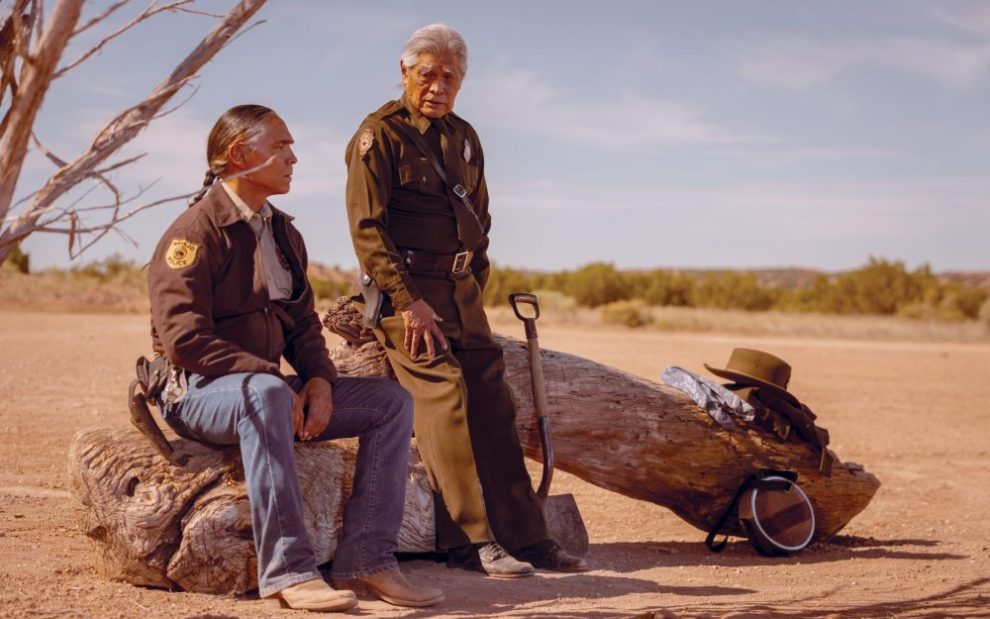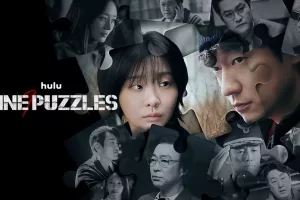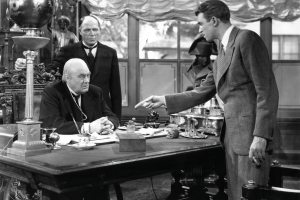“Until the lion tells the story, the hunter will always be the hero,” says an African proverb.
It’s time that Indigenous Americans told their own stories—and the rest of us listened.
Television content from Indigenous creators has been a small canon, but it is now growing, signaling an enduring and welcome presence. It’s an essential voice, if the United States is ever to understand its own history—including what is dark and difficult to look at.
For more than 100 years, Indigenous children were taken from their families and put into harsh, punitive boarding schools in a systematic government- and church-sponsored effort to annihilate Native culture. Children were punished for speaking their own languages, and abuse was common. Overcrowding led to disease and death, and children were buried on school grounds without identification or family notification.
A December 2024 Washington Post investigation found more than 3,100 students had died—more than three times as many as the government reported. In Canada, the United, Anglican, and Presbyterian churches and the Catholic Missionary Oblates of Mary Immaculate apologized in the late 1980s and early ’90s. The U.S. Catholic bishops issued an apology last year.
Recent television narratives from Indigenous creators don’t focus on the residential schools; yet in these stories, lost children and ruptured families are a historical fact of life—woven into memories and held in generational trauma. Catholic viewers might approach these shows as chances for education, reflection, and solidarity.
In Dark Winds (AMC), based on Tony Hillerman’s novels, Zahn McClarnon plays Navajo Tribal Police Officer Joe Leaphorn. McClarnon (Standing Rock Lakota) is always fascinating to watch. Here he’s especially compelling and intense, relaying Leaphorn’s complex history and emotions in subtle, smart ways.
Joe’s home life and relationship with wife Emma (Deanna Taushi Allison) becomes a revealing study in marriage and grief. Officer Jim Chee (Kiowa Gordon, Hualapai) left the reservation as a child and has just returned; Bernadette Manuelito (Jessica Matten, Red River Métis-Cree), is the lone female sergeant on the force, significant in the 1970s.
Set in the Navajo Nation near Monument Valley in the 1970s, it’s a nuanced, layered show studded with notable actors (Jenna Elfman, A Martinez, John Diehl, Jeri Ryan)—satisfying, provocative, and binge-worthy. Tribal customs and culture are treated with respect and dignity, honoring modern Native American life.
McClarnon is one of the executive producers, who include George R. R. Martin, Robert Redford, and Chris Eyre (Cheyenne and Arapaho).
It’s easy to be charmed by North of North, a Canadian sitcom (CBC, APTN, and Netflix) set in a Arctic community on Prince of Wales Island in Nunavut. The title is accurate—that’s way north of just about any other north there is.
Siaja (the radiant Anna Lambe, Inuk) is a young stay-at-home mom who tries to leave her marriage and invent a meaningful life—but boy, is she bad at it. One plan after another blows up in embarrassing ways, yet Siaja has a fierce faith in herself.
Stacey Aglok MacDonald and Alethea Arnaquq-Baril, Inuk filmmakers and producers, created the series. They filmed in Iqaluit, Nunavut, and employed many local residents in various capacities. There’s snow, ice, ocean, and meals that include raw seal meat—such a hard-won commodity, one elder reveals, that it’s a mark of romantic affection for a man to bring some to his romantic interest.
The soundtrack includes throat singing and Inuk artists such as Riit covering pop hits—a wonderful mix of ancient and new. Costume designers Debra Hanson and Nooks Lindell blend authentic parkas made by Inuit artisans with playful, imaginative modern wardrobes—and that gown Siaja wears in the dream sequence!
By the end of season one, it’s unclear whether Siaja will move forward or backward, but the show was just renewed for season two, so all will be revealed.
Emmy-nominated Reservation Dogs (Hulu) concluded two years ago after three seasons. Created by Muscogee and Seminole Sterlin Harjo and New Zealander Taika Waititi, it’s written, directed, and acted entirely by Indigenous artists. This unflinching view of the culture, limitations, and challenges of life on an Oklahoma reservation is seen through the eyes of four teenagers (played hilariously and heartbreakingly by Devery Jacobs, Mohawk; D’Pharaoh Woon-A-Tai, Oji-Cree; Paulina Alexis, First Nations; and Lane Factor, Caddo Nation). McClarnon appears here as good-hearted reservation police Officer Big. Veteran actors Gary Farmer and Wes Studi are special delights, and the entire cast is faultless.
Rutherford Falls (Peacock), which ended in 2021 after two seasons, is an ambitious comedy exploring serious stereotypes and prejudices about Native Americans, using quirky humor and engaging characters. Reagan (Jana Schmieding, Cheyenne River Sioux) and her friend Nathan (Ed Helms), a descendant of their small town’s white founder, have clashing perspectives on history, colonization, and privilege. Casino CEO Terry Thomas (Michael Greyeyes, Muskeg Lake Cree Nation) sees big economic possibilities in the future. This exploration of what should be saved and honored, and whose version of history counts, is delivered with a light hand, though it’s a heavy message. Sierra Teller Ornelas (Navajo) was showrunner and cocreator.
This article also appears in the September 2025 issue of U.S. Catholic (Vol. 90, No. 9, pages 36-37). Click here to subscribe to the magazine.
Image: Michael Moriatis/AMC













Add comment